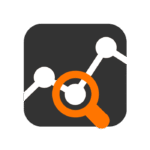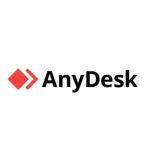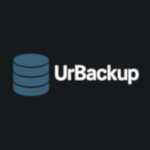RustDesk: Remote Desktop Without the Middleman
When you need to connect to a remote machine, the last thing you want is to route your traffic through someone else’s cloud. That’s where RustDesk stands out. It’s a full-featured remote desktop solution — like AnyDesk or TeamViewer — but it gives you full control over the server side.
Whether you’re managing internal endpoints, helping remote users, or setting up unattended access to headless machines, RustDesk handles it. And unlike browser-based tools, it feels responsive, even over less-than-perfect links.
What RustDesk Brings to the Table
| Feature | Why It Matters |
| Peer-to-peer capable | You can use public relay servers — or host your own |
| Built-in encryption | End-to-end, always-on; you control the key |
| Cross-platform clients | Works on Windows, macOS, Linux, Android, iOS |
| Self-hostable infrastructure | Includes rendezvous, relay, and heartbeat servers |
| File transfer | Drag-and-drop or direct copy between systems |
| Unattended access | Can install as service, with pre-shared credentials |
| Clipboard sync | Share text between remote and local seamlessly |
| Portable builds | Available as install or no-install binary |
Architecture & Requirements
– Server stack: hbbs (relay) and hbbr (rendezvous); both written in Rust
– Client install: Optional — portable mode available for quick support sessions
– Firewall: Ports 21115 (relay) and 21116 (rendezvous) by default
– Encryption: RSA + AES; key pair generated per device unless pre-shared
– Platform support: All major OSes, including mobile; ARM builds available
– Custom domain: Can use own DNS and certs for internal routing
You’re not forced to trust someone else’s backend — but it works even if you don’t host anything yourself.
Install & Use (Basic Linux Setup)
- Download latest RustDesk server:
wget https://github.com/rustdesk/rustdesk-server/releases/latest/download/hbbs-linux-amd64
wget https://github.com/rustdesk/rustdesk-server/releases/latest/download/hbbr-linux-amd64
chmod +x hbbs hbbr
- Run both:
./hbbr &
./hbbs -r <your.domain>:21117 &
- On the client, enter your server’s IP or domain in RustDesk settings.From there, you can connect via ID or IP, and manage connections from anywhere.
Where It Excels
– Providing remote support inside corporate networks
– Avoiding cloud-hosted relay servers for compliance/security reasons
– Giving sysadmins access to remote lab equipment or VMs
– Enabling unattended access to kiosks or remote workstations
– Lightweight support on devices without heavy agents
Strengths and Drawbacks
Why teams like it:
– Easy to self-host, no license restrictions
– Feels snappy — low latency and fast screen refresh
– Cross-platform — one tool for every OS
– Doesn’t require user account or external login
– Works out of the box, but scales if needed
Things to keep in mind:
– No native AD/LDAP integration (yet)
– Self-hosted setup takes a bit of manual networking
– Some mobile UI quirks, especially on Android
– Service install for unattended mode may require manual tweaks
– Audit/logging limited unless wrapped with third-party tools
Final Words
RustDesk is what happens when remote access is built with developers and sysadmins in mind — not sales teams. No ads, no forced upgrades, no cloud dependency unless you want it. Just a clean, capable tool that does its job and stays quiet. If your organization prefers keeping control over infrastructure and values speed over branding, RustDesk is worth a serious look.






